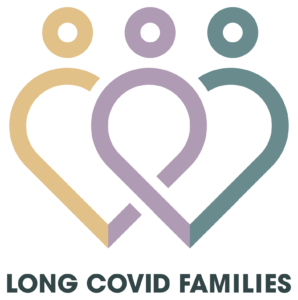
HHS announced new national actions on Long COVID. We welcome this progress — and urge leaders to name children clearly in every initiative.
The Department of Health and Human Services has announced new actions on Long COVID, following roundtables that brought together patients, caregivers, medical professionals, and advocates. We are encouraged to see caregivers recognized as part of this effort. Families carry the daily weight of this illness, and naming them matters.
During the event, Senator Roger Marshall spoke about a family member’s struggle with Long COVID. Families across the country will recognize themselves in that experience. It is a reminder that Long COVID is not distant. It lives inside households, shaping daily life for millions of children and their families.
HHS outlined three important commitments:
- A national public awareness and education campaign for patients, families, and employers.
- An open-source medical resource platform to share best practices for care.
- A new federal report on health insurance access for people with Long COVID.
These are valuable steps. We are grateful for this progress and hopeful that as details emerge, children will be named clearly within each of these initiatives. Nearly six million children in the United States are living with Long COVID. Their needs are not identical to adults, and they cannot be left implied.
HHS already oversees RECOVER’s pediatric studies and clinical trials. That research is teaching us how Long COVID develops in children and will begin testing treatments tailored to them.
To build on that foundation, children must be explicitly included in every area HHS just announced:
- Public awareness campaign: Families need information about how Long COVID affects children, with resources that help parents and schools recognize symptoms early.
- Medical resource platform: Pediatric clinicians need clear, practical guidance drawn from research, so families can receive care that reflects what we already know about children.
- Insurance reporting: Data on adults is valuable, but families need parallel work that looks at how insurance gaps affect children, from accessing specialists to getting coverage for therapies.
When we met with Senator Young’s and Senator Marshall’s offices, we emphasized the next steps federal leaders must take:
- Turn pediatric research into care so families are not left waiting years for discoveries to reach their children’s doctors.
- Connect research to learning so what we know about memory, focus, and fatigue can guide how schools help children keep up in class.
- Support family stability through pediatric mental health services, caregiver support programs, and community-based resources that strengthen resilience.
The HHS roundtables were framed as action sessions, and that commitment matters. To build on this progress, children must be made visible at every step — in research, in care, and in the way our systems respond. Families should never have to question whether their kids are included.
Now is the moment to act. If you are a policymaker, researcher, or educator, commit to naming children clearly in every Long COVID plan. If you are a caregiver, share your story so decision-makers understand what families are facing.
Want to stay connected? Sign up for our newsletter to receive updates on pediatric Long COVID research, family resources, and advocacy opportunities. Together, we can ensure children are not left behind.




